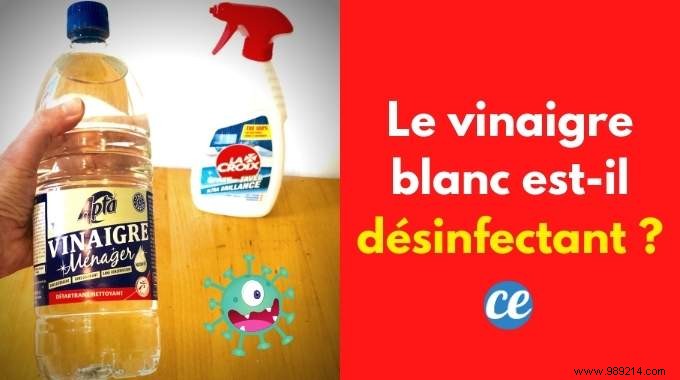
Is white vinegar a good disinfectant?
The question is simple...
And you've probably asked yourself this more than once!
Fortunately, today we take stock of this question that many readers of comment-economiser.fr are asking themselves.
But the answer is a bit more complicated than you might think.
So does white vinegar really disinfect? And if so, what can be disinfected with?
Follow me, we explain everything to you. Watch:
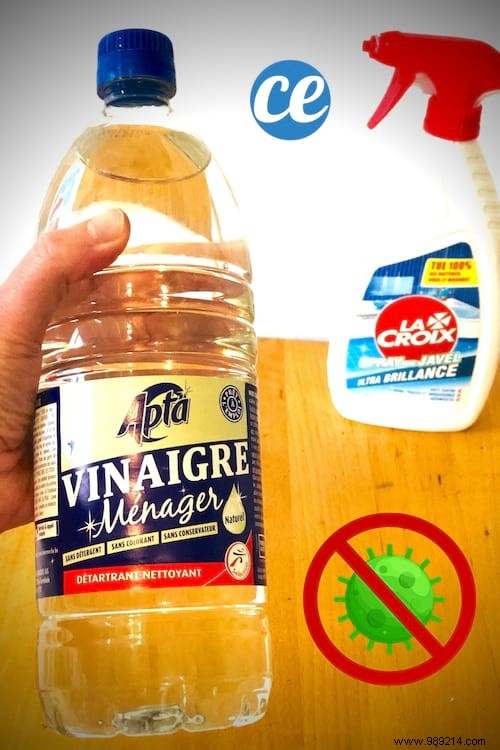
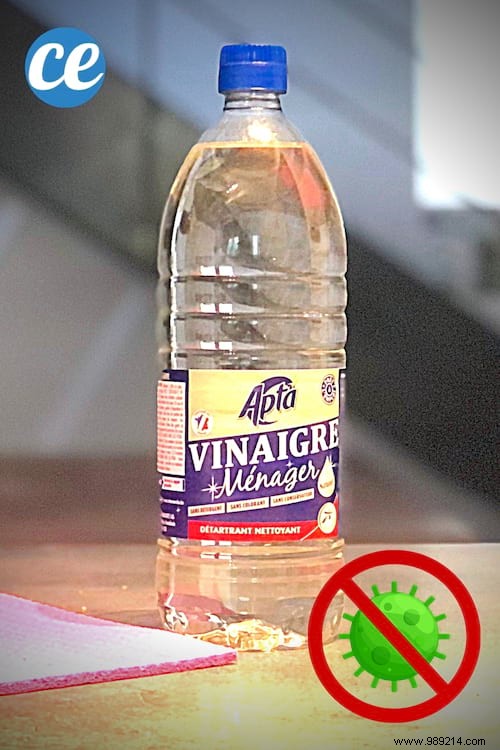
So is white vinegar a disinfectant or not?
Bactericidal and effective antiseptic, it has a disinfecting power.
It fights effectively against germs and bacteria that spread in the house.
It allows you to find clean and healthy surfaces for daily natural cleaning.
For example, it can disinfect a small wound on the skin...
...or laundry washed at 60°. Very practical in case of gastro for example!
And it is safe for your health, that of children and pets.
Every day, white vinegar can be used for the disinfection of the whole house.
It is an absolutely indispensable multi-purpose product.
It can be used to clean and disinfect:
- vegetables
- the work plan
- the fridge (inside and outside), the washing machine, the dishwasher or the microwave
- the kitchen, the bathroom and disinfect the toilets
- door handles and switches
- computer keyboards and smartphones
- very dirty tea towels
- his toothbrush
- the broom
- the floor
- carpets
- for streak-free window cleaning
Are you looking for a multi-purpose spray with disinfectant properties?
Here is an easy recipe to make with only 3 ingredients.
Its manufacture is very simple!
It combines the properties of white vinegar, baking soda and essential oils (lemon, tea tree...).
Good to know, a 14° white vinegar is more acidic than an 8° white vinegar.
It is therefore more effective for cleaning the whole house. It is also a more powerful anti-limestone.
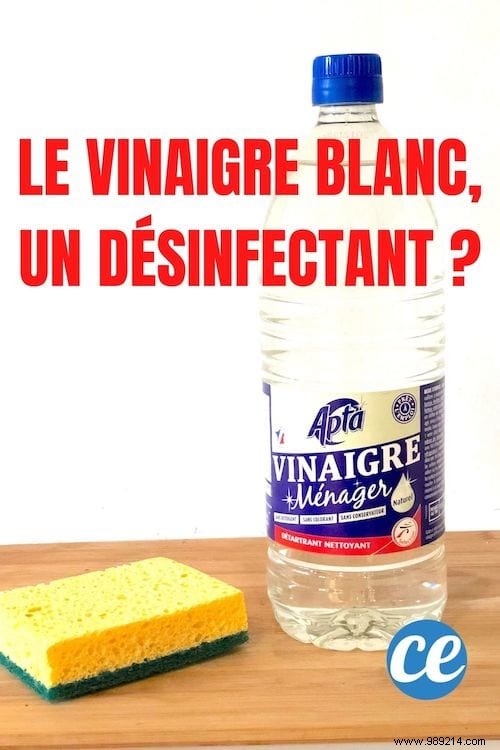
As we explained to you here, white vinegar is effective in inactivating a virus like COVID.
Indeed, it does not eliminate the virus in the sense that it does not kill it.
On the other hand, it makes it harmless, which prevents it from contaminating us.
How? 'Or' What ? Thanks to the acetic acid it contains, it attacks the envelope of the virus and denatures it.
It is this process that renders the virus inactive.
In the end, white vinegar works like soap. It does not kill the virus, but it prevents it from being harmful.
So, for daily use, white vinegar is a completely acceptable alternative.
To discover: Coronavirus:How to properly disinfect your interior?
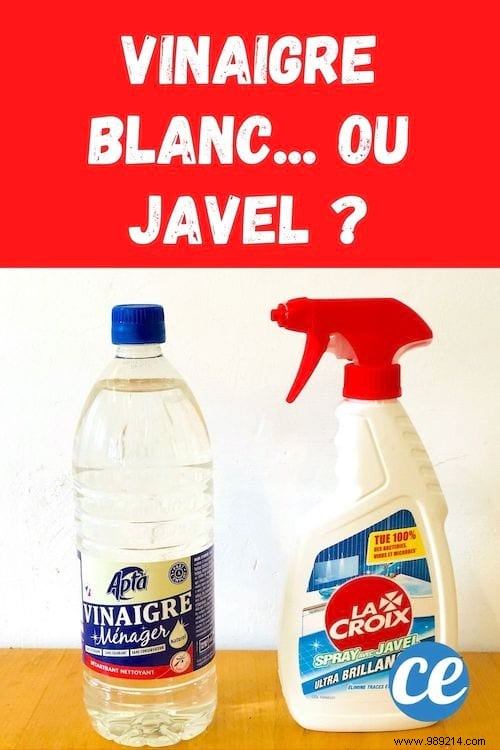
From an official point of view, a disinfectant product is a virucide.
But white vinegar is not a virucide.
So it's not a disinfectant stricto sensu . CQFD!
To be officially a disinfectant, a product must be able to kill a virus.
Any virus, including the coronavirus!
It must also meet specific standards.
These are the NF EN 14476+A2 standards which date from 2019 and NF EN 14885 (2018).
Only products containing at least 70% alcohol can kill a virus.
This is therefore the case with household alcohol... But not with white vinegar.
Bleach also includes this category of products.
This is the solution recommended by the World Health Organization (WHO).
“There are chemical disinfectants that can kill Covid-19 on surfaces. These include bleach or chlorine based disinfectants, solvents, 75% ethanol, peracetic acid and of chloroform", explains the WHO.
Bleach is a product accessible to all, economical and effective against COVID.
Do you live with a sick person or do you have an exposed profession?
It is therefore recommended to use bleach to disinfect your interior.
But be careful, bleach is a dangerous and toxic product.
It is not without consequences for your health or the environment. It should therefore be used with moderation.
Thus, except in exceptional cases, it is not recommended to use it on a daily basis.
Also remember that you should not disinfect your hands with bleach...
And even less clean your pets with it.
It is strictly not recommended to clean food products with bleach.
And you should never mix bleach with hot water or white vinegar.
Finally, when you use it, remember to protect yourself by wearing gloves.
To discover: Coronavirus:5 Mistakes Everyone Makes With Bleach.